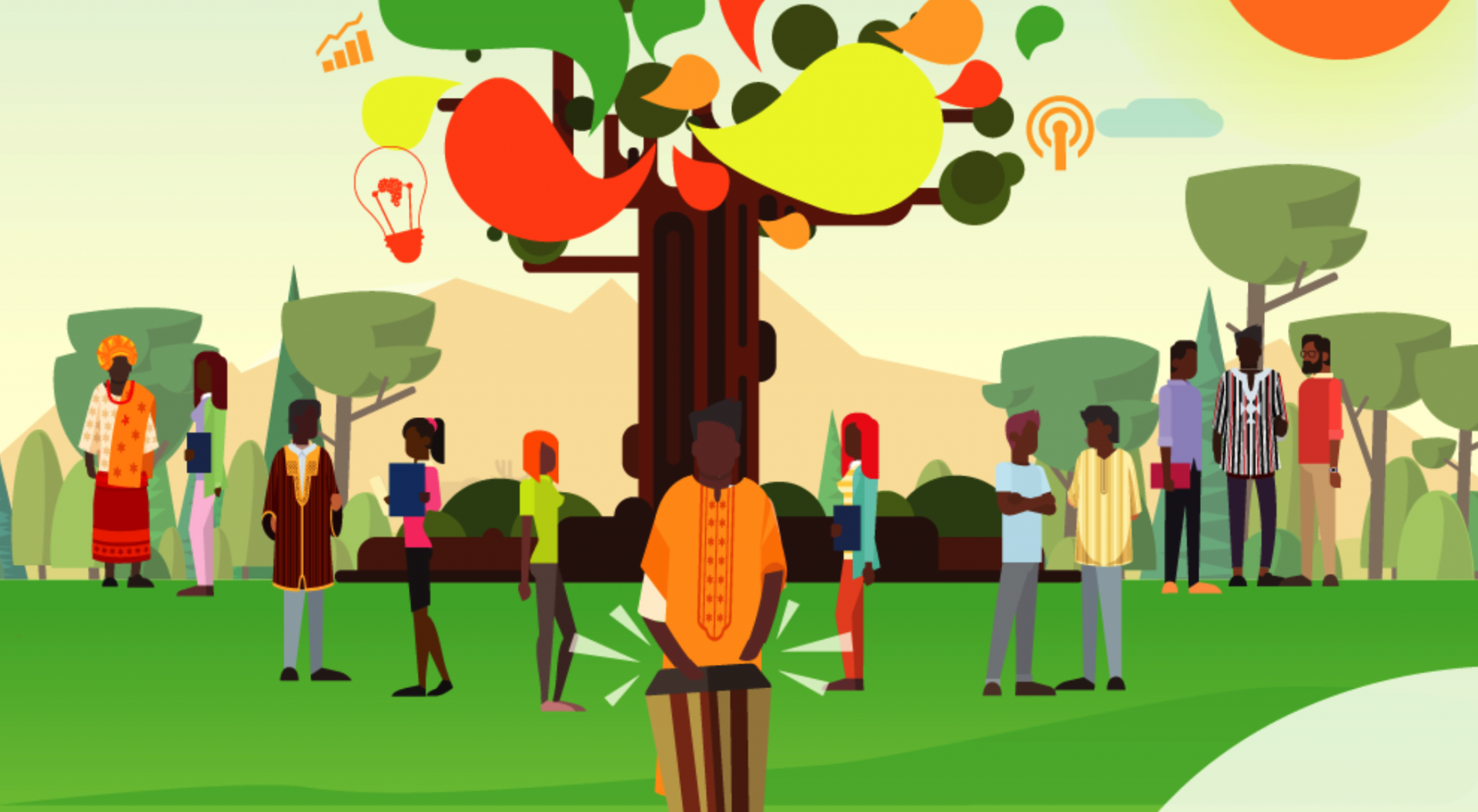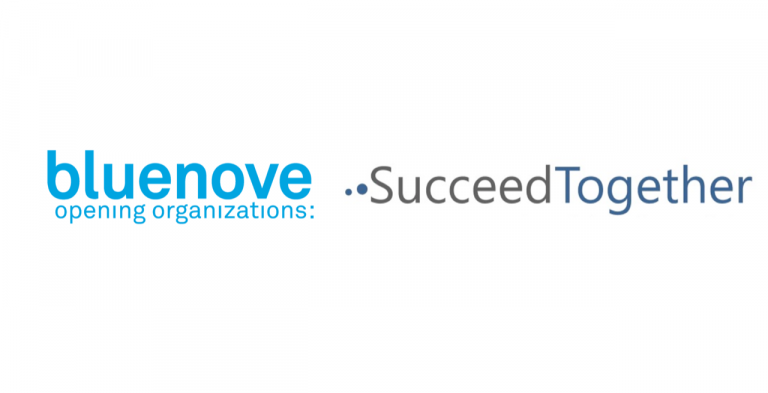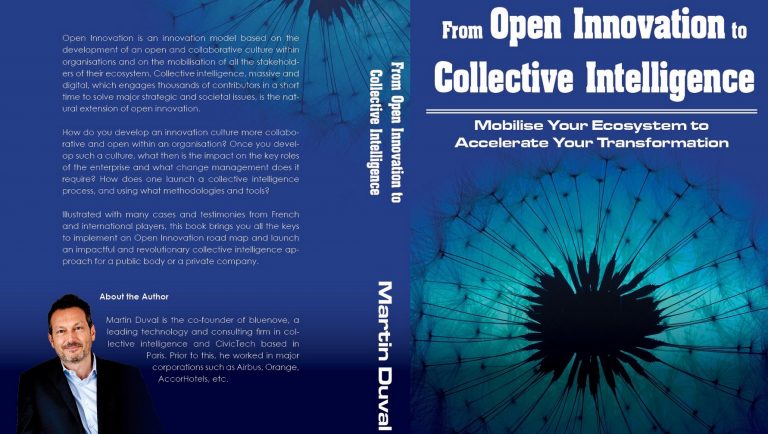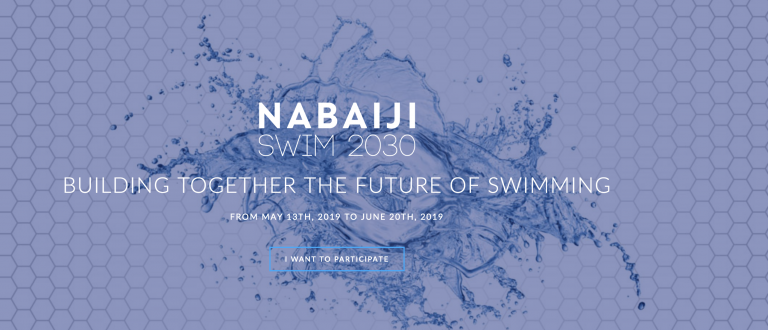Or how Societe Generale in Africa went from a community of managers with less than 80 persons to collective intelligence at a whole continent’s scale…
The first experiments, the premises for a culture of open innovation
The pan-African Valley Community: the beginning
It all started in 2014 from the strong intuition that transversally, digital transformation and the pooling of skills to meet strategic challenges are the essential levers to give a pan-African dimension to Societe Generale’s various subsidiaries in Africa.
This intuition resulted in the launch of the first pan-African community of managers, the PAVC (Pan-African Valley Community).
When it was created, the PAVC’s ambition is to « co-create the future of Societe Generale in Africa ». The community aims at favoring synergies between countries and to actively contribute to the development of business on the continent through projects consisting in producing strategic recommendations on a given subject.
These projects thereby allow to address complex issues in a short amount of time, collectively and online on the group’s intranet. These characteristics already hint to the premises of the collective intelligence which would become massive three years later.
One of the projects on which the members of the community worked since 2015 is the design and future of the pan-African innovation LAB’s value proposal. They needed to answer the following question: « How do we tool up to construct tomorrow’s African bank? ». This had to go through the acculturation of the collaborators internally and externally by a stronger connection with the ecosystem. Otherwise, the choice was made to create a LAB in total immersion in the local ecosystem localizing it in JokkoLabs’ offices, one of the largest independent catalyzers of entrepreneurship and innovation at the scale of the continent.
The Dakar LAB: the birth of an ecosystem
The Dakar innovation LAB achieved to, in a couple of years, become the masterpiece in innovation for Societe Generale in Africa. This, through the organization of external Challenges (Hackathons) by African startups since 2016, and many internal innovation challenges with the groups’ entrepreneurs, on subjects going from the clients’ satisfaction to the transformation of banking agencies.
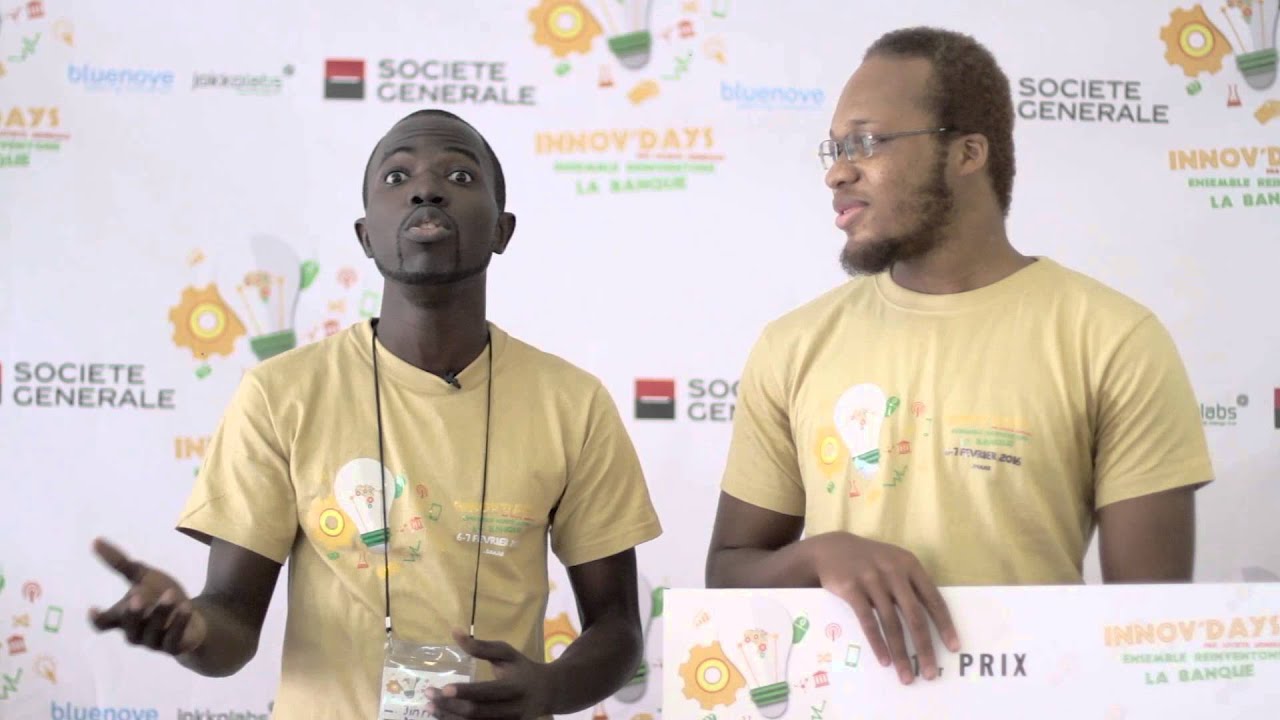
Meanwhile, the PAVC created a larger and stronger network between pan-African talents, managing executives from different subsidiaries and representatives from the bank in France. Since 2016, the PAVC seminar has taken place in Casablanca, Dakar, Accra, Alger, and, lastly, Abidjan. It is intended to continue touring between different countries to build even stronger bridges in a community which today counts over 200 talents, more than double the amount at launch.
The common destiny idea
It is during a PAVC seminar in Accra in 2017, seeing how far the communities had come, their growing maturity on the new digital tools and their expressed desire for more transparency and transversally that the idea of launching a massive consultation, on the scale of all the continent’s collaborators, was born.
The beginnings of massive collective intelligence and the acceleration of innovation
This Big Bang (because yes, that’s what it is about when an international bank decides to open up the definition of its strategy to all its collaborators) is called SAFARI. A page is turned.
SAFARI: a new dimension
For three months, from December 2017 to February 2018, Societe Generale’s 11 500 collaborators were invited to participate on SAFARI, through bluenove’s platform Assembl. The ambition is huge: « Be 11 500 to co-write the 10-year strategy for the new Africa Business Unit ». This internal strategic debate by eliciting extraordinary commitment (more than 5000 participants contributed to the platform), has given Societe Generale the reflex to use collective intelligence to solve complex problems.
At the same time, innovation is embodied. Valérie-Noëlle Kodjo Diop joins Societe Generale as Innovation Director for the Africa Overseas zone (AFMO). She launches an 18-month “Innovation Program” with the aim of building an end-to-end path to support start-ups inside and outside the company.
“The Innovation Program is a transformation of our software for the support of our start-ups; at the level of our own devices that we are building: Labs, Digital factory, Plateau, but also through partnerships.” Valérie-Noëlle Kodjo Diop
Discovery, Design, Delivery: time for rationalization
The Innovation Program allows the creation of a methodological repository, dedicated to structuring innovation at Societe Generale in Africa: the 3Ds corresponding to the three main stages in the evolution of an innovative project, from ideation to industrialization. Thanks to the program, Societe Generale’s 18 subsidiaries are equipping themselves to strengthen their support systems for start-ups on this continuum.
Within this framework, the innovation team works to identify needs by opening up dialogue directly with clients, with, among others:
- “L’Arbre à Palabres” (December 2017): a Bootcamp that questions the players in the informal economy to identify their needs, followed by a Hackathon collecting the solutions developed by local start-ups to meet them.
- “Tam Tam” (April 2018) : First collective intelligence exercise open to customers and involving start-ups, Societe Generale employees and informal economy players. It is followed by the eponymous Hackathon on health and financial education. Thanks to this first digital and face-to-face debate, collective intelligence is becoming a powerful tool for innovation.

Innovators: the time of decentralization
In the summer of 2018, the talents related to the subjects of innovation and new technologies together in community. With this new network, the ambition is to disseminate, test and embody the culture of innovation within each of the subsidiaries. A single objective: to decentralize the system and make it local. To achieve this, an innovation referent is appointed in each country to deploy the innovation program and adapt it to local constraints and opportunities.
“By relying on a community of innovators spread across the continent in each of its locations, Societe Generale is able to transform its banking model by drawing inspiration from African realities”. Hélène Lac Le Gall
Today, this community has 26 members from the various African and overseas subsidiaries, the Yup and Manko alternative banking models, as well as cross-functional functions such as compliance. The creation of a powerful ecosystem!
Building a network: Labs, communities and consultations
In 2018, the Innovation Program moves to the third stage: industrialization. All of the approaches are structured and inter-connected to provide better support for projects throughout the continuum.
Within this framework, the teams are undertaking several actions:
- In order to have a wider geographical coverage, Lab Dakar is opening antennas in Douala, Cameroon and Abidjan, Ivory Coast.
- Three years after the creation of the Innovation Lab in Dakar, Casablanca has its own HUB, complementary to the first one. Focused on emerging technologies and the internal acculturation of collaborators, the Casablanca Hack-Lab is a pan-African hackerspace where creative people with a passion for technology come together to create synergies oriented towards doing. Today, the Hack-Lab is well established in the Moroccan and Pan-African ecosystem. Among its programs, Hack & do, a training/action on the Blockchain, Machine Learning and Big Data, and the Hack Lab Community, a community of collaborators and beta-testers customers who give their feedback on innovative projects, from idea to prototype.
- To accelerate the industrialization of solutions that meet the needs of subsidiaries, the innovation department is launching the Catalyst open innovation program.
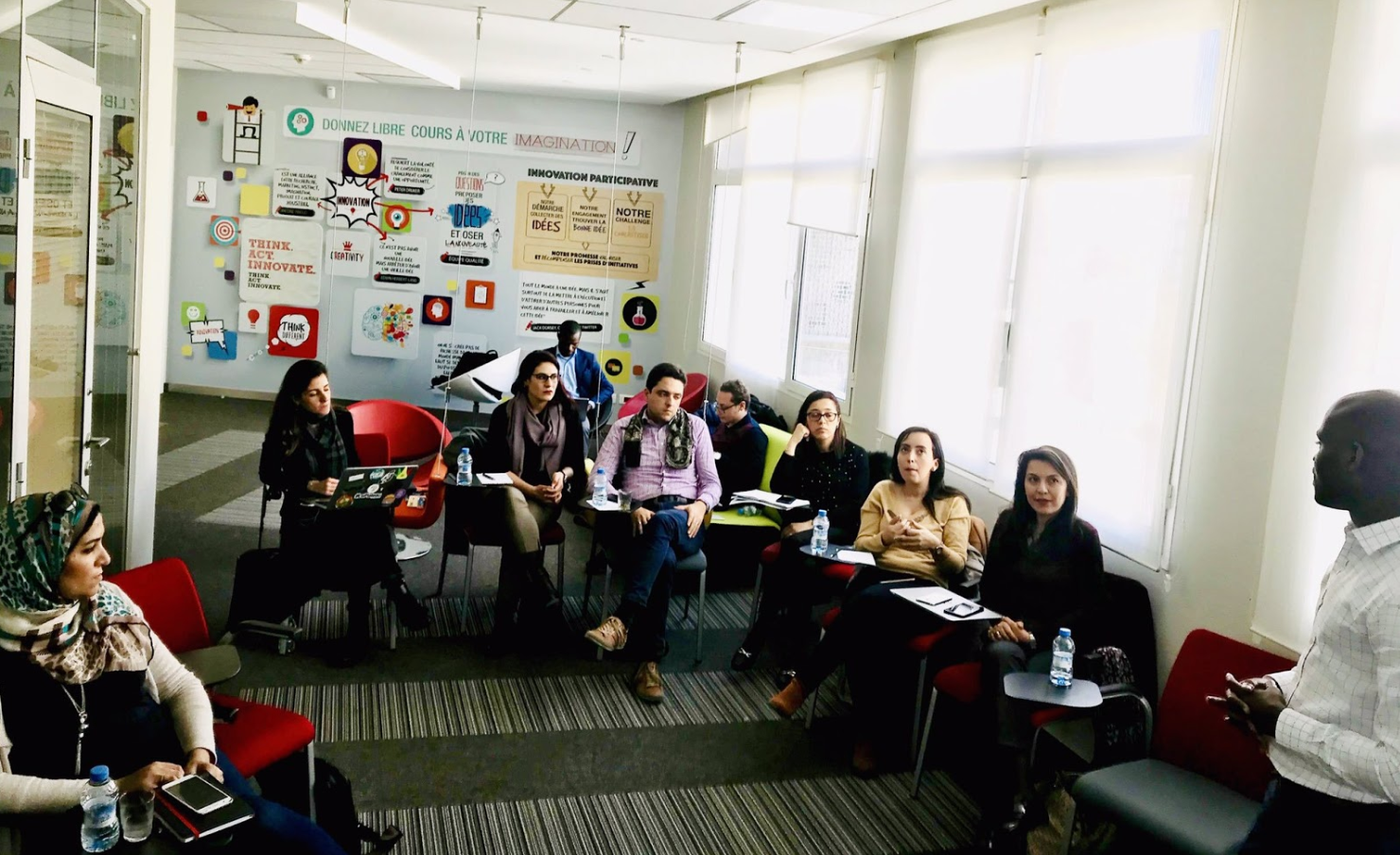
ZOOM on Catalyst
The Catalyst program is one of the first intra-group open innovation approaches. It consists of bringing together the problems of African and overseas subsidiaries with solutions from an Indian start-up ecosystem via the Societe Generale Global Solution Center in Bangalore.
The advantage of this approach is that it provides duplicate solutions to needs shared by a majority of countries in a short period of time. Today, Indian start-ups have prototyped 10 use cases in 10 weeks. These cases will be industrialized after selection in autumn 2019. The Catalyst program is an example of accelerating production start-up under the Delivery mode within the innovation department.
The democratization of collective intelligence
Same increase in power for collective intelligence. This is becoming a real tool at the service of strategy and operational staff. It embraces subjects ranging from product innovation (the SAFARI Retail debate was launched to gather ideas to better serve retail banking), to cultural innovation with the Diversity for Africa project. The latter aimed to open up the debate to make Societe Generale a fairer company with ever greater diversity.
In conclusion, if we look at how far Societe Generale has come in terms of innovation and collective intelligence, we can only be optimistic.
- Innovation has been structured and industrialized thanks to permanent systems (LAB, Digital Factory, etc.), acculturation with the Innovators and the 3D process;
- Collective intelligence has become a reflex for the top management of AFMO but also for the Innovation and HR functions. Several subsidiaries (Morocco, Ivory Coast, Reunion Island) have also taken advantage of it to mobilize their employees & customers and co-create new knowledge.

In two years, Societe Generale has launched eight collective intelligence initiatives, collecting a total of 13,000 contributions, bringing together more than 11,500 employees and creating a truly pan-African unit.
The road ahead is just as exciting. Indeed, future projects include the creation of a dedicated governance structure to make the African Business Unit a center of excellence in collective intelligence for the Group, the scaling up of the Innovation Program and the launch of a major pan-African debate on the impact of AI on the bank’s businesses in Africa. Fascinating, isn’t it?
Article co-written with Hajar Chokairi and Ornella Maghany
